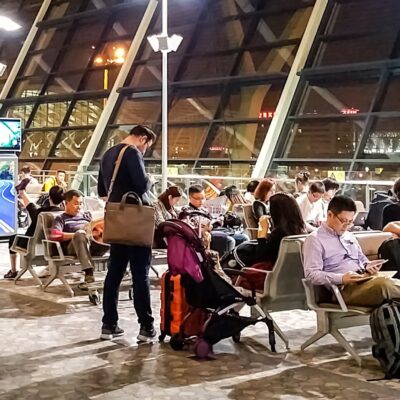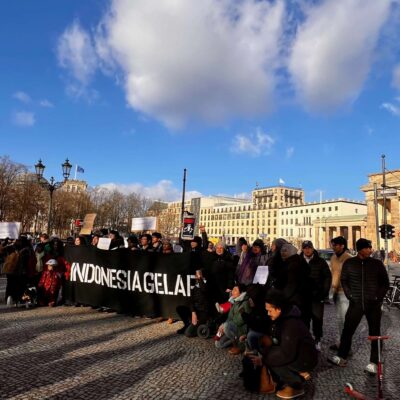Cambodia’s journey towards democracy has been tumultuous. Over the past five to ten years there has been growing sentiment that Cambodia’s democracy is either failing, or has already failed. When looking at the results of the 2013, 2018 and 2023 general elections, it is not difficult to see why this sort of criticism has been levelled towards the ruling Cambodian People’s Party (CPP) of former Prime Minister Hun Sen and his son, the current Prime Minister, Hun Manet.
A key part of a functioning democracy is parliamentary transparency. Parliamentary monitoring organisations (PMOs) work to strengthen a number of components of democratic governance, including the accountability of parliaments to the electorate, citizen engagement in the legislative process, and access to information about parliaments and their work. They also show a growing capacity to encourage and support parliamentary reform. PMOs are usually found in contexts where democratic functions are relatively cohesive, often with a government’s support in an effort to build trust with the public, creating a sense of accountability within parliaments.
But how do PMOs function in contexts where it is difficult to uphold the core principles of democracy and parliamentary transparency?
Recent elections in Cambodia
In July 2013, Cambodia saw its closest general election with the CPP gaining 68 seats in the National Assembly out of 123 and its opposition, the Cambodia National Rescue Party (CNRP) winning 55. This result was acknowledged by many to be a great demonstration of the developing democratic system within Cambodia that, at the time, was only 20 years old. However, it wasn’t without controversy. CNRP officials, including leader Sam Rainsy, questioned the election results amid rumours of cheating and subsequently refused to enter parliament. This led to widespread protests across Cambodia, with many strikes occurring amongst factory workers in efforts to disrupt supply chains to gain greater international attention. These were eventually halted through heavy-handed dispersals coordinated by the CPP, with one instance resulting in the death of four workers after the military opened fire on a group of protestors. Further to this, the Cambodian PMO—Committee for Free and Fair Elections in Cambodia (COMFREL)—provided an array of suggestions for reform of the National Election Committee (NEC), resulting in some changes being implemented regarding voter registration.
Whatever ground was made in 2013 was lost in the period leading to the 2018 election. The CPP were total victors, gaining all 125 seats (123 seats in previous elections). The CPP was able to exile and imprison key figures within the CNRP, allowing the CPP to essentially run unopposed.
In the July 2023 election, the CPP won 120 seats, while the once influential National United Front for an Independent, Neutral, Peaceful and Cooperative Cambodia (FUNCINPEC) party taking the other five. The main opposition party, the Candlelight Party (a successor of the dissolved CNRP) was barred from taking part. A few days after the election, Hun Sen handed over the leadership to his eldest son Hun Manet.
These developments show that democracy in Cambodia is not functioning well and have created a difficult environment for PMOs in which to function.
Parliamentary monitoring in Cambodia
One of the critical milestones in Cambodia’s parliamentary monitoring history was the establishment of COMFREL in 1995. COMFREL was formed as an amalgamation of human rights, civil society and other NGO bodies and groups that had worked together in the 1993 elections conducted by the United Nations Transitional Authority in Cambodia (UNTAC).
COMFREL operates as an independent, non-partisan non-governmental organisation and seeks to support free and fair elections whilst also promoting and enhancing citizen participation in Cambodia’s democracy. It currently has 18 paid staff working at its head office in Phnom Penh as well as an additional 18 provincial secretaries that are tasked with coordinating initiatives across all the provinces of Cambodia. COMFREL’s operations also rely on assistance from volunteers as much of their work is dependent on election cycles. One of COMFREL’s largest undertakings is deploying election observers in general, communal and senate elections.
COMFREL has not been the only organisation operating within the PMO space in Cambodia. The National Democratic Institute (NDI) were part of the working group that assisted UNTAC with the 1993 elections. They had worked in Cambodia for 25 years, under their universal goal to: ‘Support and strengthen democratic institutions worldwide through citizen participation, openness and accountability in government’. In 2017, less than a year before the 2018 elections, the US-based NDI was expelled from Cambodia amid government claims that it breached the controversial Law on Associations and Non-Governmental Organisations (LANGO). LANGO has been criticised for imposing mandatory registration on all NGOs, with the government holding total discretion over the registration process.
The removal of the NDI was a clear indicator of the lengths to which the ruling party in Cambodia was willing to go to in order to stifle public criticism and assembly. The NDI’s removal showed to bodies within Cambodia the ease with which the government could cease their operations. This demonstrated to COMFREL that there would be ongoing obstacles that could be put place for organisations that operate within the confines of the Cambodian political system. These obstacles are not the same for all civil society organisations, as other organisations which may work in spaces such as welfare or education do not encounter the same issues. The issue therefore is not that COMFREL is a civil society organisation, it is that they are political.
COMFREL’s monitoring work
Due to COMFREL being one of the remaining PMOs within Cambodia, they have incorporated into their programs a broad range of work related to the overall objective of supporting democracy. COMFREL’s programs include the following, which all focus on engaging with the public at a grassroots level:
- Democratic governance reform, which includes ‘government watch’ and ‘parliament watch’ publications that are distributed after key events as well as at the conclusion of a legislative period, monitoring of corruption through attendance at open parliamentary sessions as well as correspondence with state journalists and other CSOs within Cambodia, publication of a ‘democracy watch’ annual report pertaining to the state of Cambodian democracy each year and also advocacy training.
- Monitoring of parliament and elections, which includes electoral support and monitoring such as the co-ordinating election observers in the most recent presidential elections, and citizen post-election and satisfaction surveys.
- Media and education, which include the Voice of Civil Society radio program (broadcast daily), the creation and sharing of multimedia education materials on democracy and elections, social media engagement, analysis of political trends posted on Facebook pages and weekly democracy and election digests which are published in English.
- Gender and education, which includes gender equality campaigns, publishing of a political ‘gender watch’ report, research on women political activists and participation in politics and coordination of the ‘women can do it’ radio show.
COMFREL has pivoted towards a larger focus on grassroots public engagement and education programs. This is where it is perceived that support for change can come from, as has been the case in other contexts. This pivot is being carried out both in-person and across digital platforms. COMFREL has launched numerous voter education programs as well as election observer training sessions. These observers have been utilised in communal elections in regions in which it was once historically more difficult for COMFREL to properly mobilise. In the 2017 election COMFREL deployed over 14,000 trained election observers, with an estimated 18,000 trained volunteer election observers comprising a grassroots network across Cambodia.
The above provides a snapshot of COMFREL’s extensive work and demonstrates the extent to which COMFREL’s resources are stretched as it tries to address gaps that have been left by the reduction of PMOs operating within Cambodia.
Working in Cambodia under the CPP is challenging
Through rigorous observation of electoral processes, COMFREL has identified systemic issues and irregularities that could undermine the integrity of elections in Cambodia, leveling criticisms at both the CPP and National Election Committee (NEC). For example, in 2013 COMFREL called for an investigation into the ties between the CPP and the NEC, requesting proof of independence from each other due to suspicion around electoral corruption. In the past, COMFREL has been able to exert a positive influence on the actions of the NEC, although this once open relationship may have faltered, with COMFREL not deploying any observers for the 2018 general elections due to the result essentially being predetermined.
Whilst the investigation in 2013 did not yield results immediately, COMFREL was able to influence the NEC’s practices through years of lobbying for the adoption of a Modernised Voter Registration System. The implementation of the new system means that it is far easier to track who is registered, as well as reducing the likelihood of citizens voting more than once and preventing the deletion of voter identities, of which there were an estimated 1.2 million in the 2013 election. Actions such as this should build trust between the NEC and the citizens of Cambodia and demonstrate that whilst it may be slow at times, COMFREL is still able to have an influence on the Cambodian political environment. Unfortunately, the subsequent national elections of 2018 and 2023 were largely performative due to there being no legitimate opposition, meaning the new voter registration system has yet to face a true test within Cambodia.
COMFREL is operating under the close watch of the CPP. The authors were made aware of at least one situation where a COMFREL workshop was interrupted by local authorities who took photos of the sessions and made copies of participant lists. Instances such as these have understandably served to spread fear amongst participants. The authors have anecdotal evidence of some observers being intimidated to the point where they no longer want to conduct their parliamentary monitoring activities. This most likely correlates with the low number of election observers deployed by COMFREL in the 2022 communal elections, totalling just under 2,000. Furthermore, through fear of similar treatment, this has limited the willingness of other civil society groups to align themselves or engage with COMFREL at a time where unity among civil society groups is becoming increasingly important.
The CPP imposes limitations on access to parliament and parliamentary information; for example, members of the public are not allowed to attend parliamentary proceedings. Some observers, such as approved journalists, are allowed but they must sit in a separate room to parliamentarians and any reports they generate are vetted by CPP officials. Additionally, records and transcriptions of parliamentary sessions are not always publicly available, which means that there is no record at all of some parliamentary sessions. Scenarios such as this serve to make the role of PMOs incredibly difficult and further demonstrate the contentious state of Cambodian democracy.
In addition, as mentioned earlier, COMFREL’s work is restricted by a lack of resources, particularly as it expands to work in areas left under-resourced due to the growing complications faced by organisations working in the realm of Cambodian politics.
Successes
COMFREL has engaged with members of parliament and government officials. Whilst this engagement is not consistent, it provides opportunities for COMFREL to express any identified risks or issues within parliament, whilst also giving government officials the space to address any criticisms that may be levelled towards them. These occur in both formal and informal settings and are used to inform COMFREL’s reporting on key events and happenings within the Cambodian political arena. COMFREL presents these findings in their annual democracy reports and advocates for policy change that aligns with fundamental democratic principles. These reports are an important resource for international political actors, whether it be foreign governments (Japan and the US have been quite active in supporting democracy in Cambodia) or international organisations (such as the United Nations or Human Rights Watch) to be able to assess information about Cambodia’s parliamentary transparency and electoral processes.
Improving democratic standards
To further enhance the democratic environment in Cambodia, COMFREL has several key recommendations:
- Strengthening public participation in the legislative process through mechanisms that allow for meaningful public participation in drafting legislation and policy formulation.
- Electoral reforms, including overhauling political party and electoral laws to provide inclusive participation and equal opportunities for all political entities and independent individuals. This would not only bolster the public’s willingness to participate more actively in politics, but it would also reduce barriers for legitimate opposition parties to emerge in the Cambodian parliament once again.
- Safeguarding freedom of expression: The protection of freedoms of expression, association, and peaceful assembly should be reformed through law. These are foundational to a functioning democracy, allowing for open debate, criticism of government policies, and advocacy for change.
- Enhancing the role of civil society: The government should recognise and support the role of civil society organisations such as COMFREL in fostering democratic governance. Removal or modification of inhibitors such as the controversial Law on Associations and Non-Governmental Organisations (LANGO) are encouraged.
COMFREL remains committed to developing partnerships with other civil society organisations within Cambodia as well as international bodies such as the Asian Network for Free Elections. Strengthening the network of civil society organisations within and external to Cambodia may help COMFREL strengthen its parliamentary monitoring activities and may facilitate greater international assistance with democratic restoration within Cambodia.
*The co-author of this article chose not to be identified.
Image: Members of the sixth National Assembly of Cambodia, September 2018. By Tum Malis/VOA Khmer.




